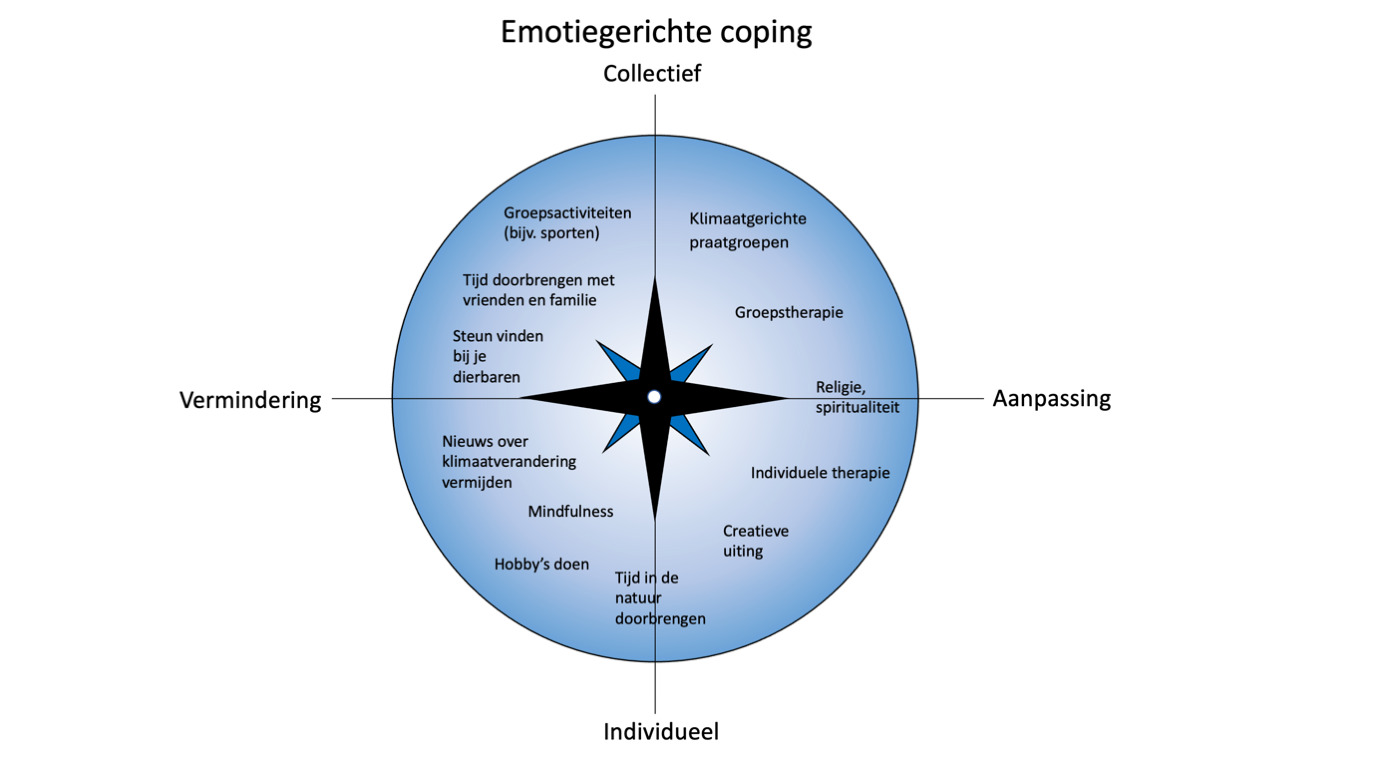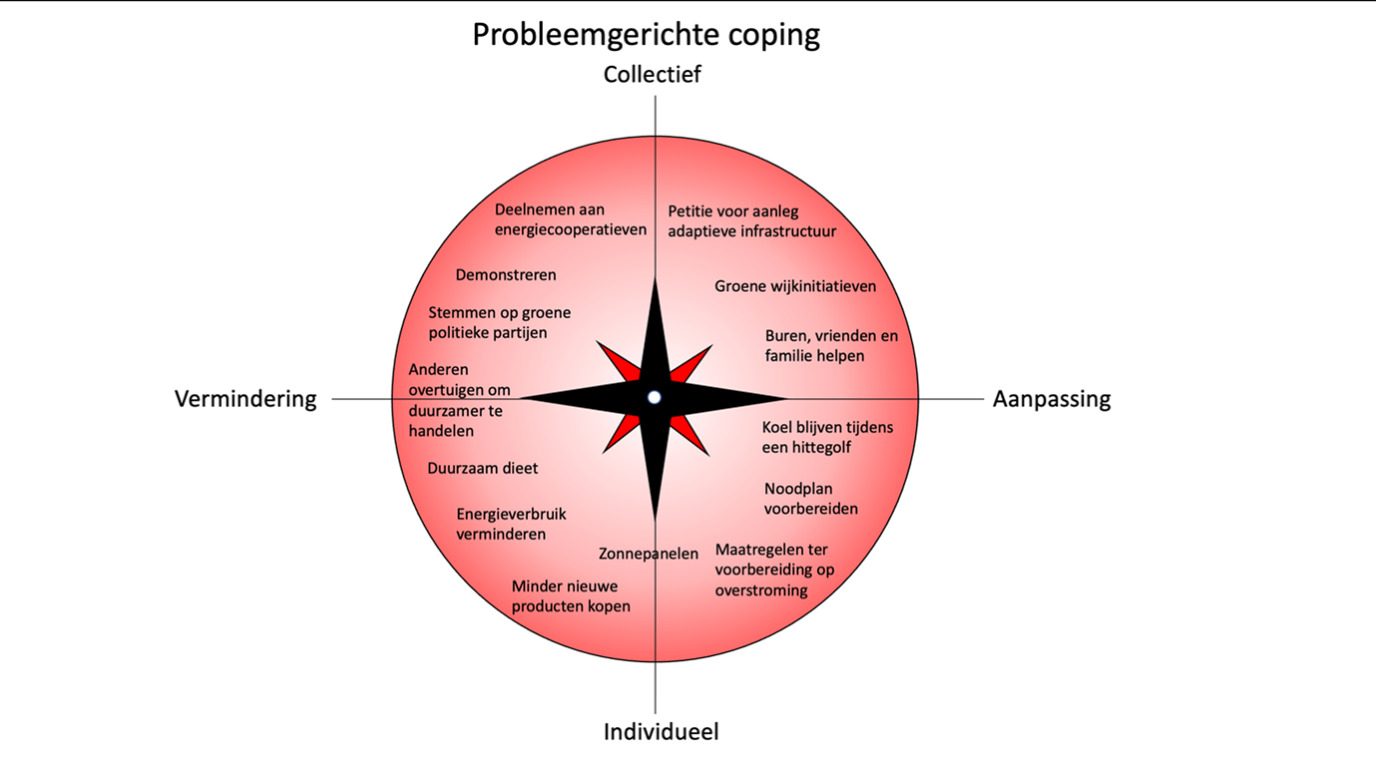The climate anxiety compass: how should we deal with climate concerns?
More and more people are increasingly worried about climate change. The moment these worries persist and are difficult to control, we speak of climate anxiety. To offer help in this situation, Anne van Valkengoed and Linda Steg of the Faculty of Behavioural and Social Sciences at the University of Groningen have developed the Climate Anxiety Compass, an innovative tool that provides an overview of ways for people to cope with their climate anxiety.
Coping with climate anxiety is a challenge for the people who experience it and for the mental health professionals who help them. What actions provide the most relief? Should we join a protest for the climate, or focus on reducing our own carbon emissions? Do we need to avoid distressing climate news, or face challenging emotions head on? With the Climate Anxiety Compass, van Valkengoed and Steg hope to help find ways to protect both mental and physical health.
The compass charts different types of coping actions, and helps to make sense of how actions that seem unrelated on the surface can actually form a coherent and holistic coping strategy. Van Valkengoed: ‘Most importantly, the compass shows that actions to address climate change and actions to manage our emotions are two sides of the same coin.’
Van Valkengoed and Steg hope that, in practice, the Climate Anxiety Compass will become a useful tool to help people with climate anxiety determine which coping ways they can rely on, and discover new ones.
The compass includes three types of ways of coping with climate anxiety:
-
Problem-focused (focusing on climate change and its consequences) or emotion-focused (focusing on the emotions and stress caused by climate change) ways.
-
Mitigation (reducing or avoiding the stressor) or adaptation (preparing for, adapting to and learning to live with the stressor).
-
Individually focused (ways performed by one person without interaction with others) or collectively focused (ways involving a group effort)
Steg: ‘Flying less, for example, can be seen as problem-oriented, moderation and individually oriented and participating in a protest as problem-oriented, mitigating and collectively oriented. Climate change represents an existential threat that challenges the mental and physical resolve of entire generations. Finding ways to individually and collectively face this threat is imperative.
More information:
-
Article: The climate anxiety compass - A framework to map the solution space for coping with climate anxiety
| Last modified: | 28 November 2024 12.45 p.m. |
More news
-
15 April 2025
Impact gaswinningsproblemen op Groningers: negatieve ontwikkeling zet niet door, maar meerdere keren schade blijft een punt van zorg
Impact gaswinningsproblemen op Groningers: negatieve ontwikkeling zet niet door, maar meerdere keren schade blijft een punt van zorg
-
17 March 2025
Liekuut | The high price of conflicts
According to Carsten de Dreu, Professor of Foundations of Cooperation and Social Organization at the University of Groningen, a lot can be learned from conflicts.
-
10 March 2025
Science for Society | Memory Lab for higher marks
Learning facts at school is something hardly anyone likes. The day before a test, pupils cram as many words or names as possible into their heads, only to hopefully remember them the next morning and then forget them again after the test.




